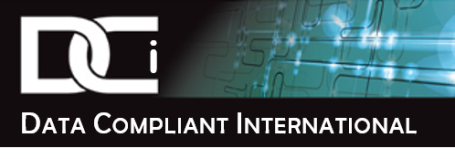AI: Ethics, Privacy and Governance vs Innovation

After last week’s AI Action Summit in Paris, AI ethics and safety legislation has become a hot topic globally. Various regions are taking different approaches. U.S. Vice President J.D. Vance made it very clear that the Trump administration was firmly opposed to “excessive regulation” of AI, and argued that it would stifle innovation and hinder the growth of the AI industry.
Global Divide in AI Regulation
With different regions in the world taking different approaches, the landscape is complex. Even within the US, there are divided approaches. In the absence of federal guidance, some states are actively implementing their own AI governance state laws to address ethical and safety concerns. These, of course, will now conflict with the current federal stance, which leans towards minimal regulation in favour of rapid AI development.
Global AI Race risks Safety, Privacy, Ethics and Sustainability
Globally, it’s a race, with China and the US at the forefront of AI development. China’s AI strategy focuses on becoming the world leader by 2030, with significant investments in research and development. The US has a similar goal and is doubling its AI research investment. Britain’s Starmer also has ambitions for rapid development. But the global competitive race is clearly in danger of compromising ethical considerations, privacy and safety – and sustainability issues – in favour of innovation and rapid development.
Trustworthy AI Governance
Data Protection Legislation Applies
In essence, regardless of guidelines and specific AI legislation and guidelines, the data protection legislation fundamentals do not change just because the processing involves AI. All AI personal data processing must abide by the prevailing data protection legislation – wherever in the world you are.
Data Compliant International
If you would like help or assistance with any of your data protection obligations, please email dc@datacompliant.co.uk or call 01787 277742. And for more information about how to meet your AI obligations, please see here.
February 17th, 2025
So it is somewhat reassuring that the UK, South Korea, France, Ireland and Australia data protection authorities have issued a joint statement on “building trustworthy data governance frameworks to encourage development of innovative and privacy-protective AI”. It does at least show that these countries are making a concerted effort to balance innovation with ethical, privacy and safety considerations
In summary the joint statement :
- States the need for AI to be developed and deployed in accordance with data protection and privacy rules, including robust data governance frameworks, and embedding privacy-by-design into AI systems from the start of the planning process
- Aims to provide legal certainty and safeguards including transparency and fundamental rights
- Commits to clarifying the legal bases for processing personal data in the context of AI
- The countries will exchange and establish a shared understand of proportionate security measures, which will be updated to keep up with evolving AI data processing activities
- They will monitor the technical and societal impacts of AI and leverage the expertise and experience of Data Protection Authorities and other relevant entities
- They aim to reduce legal uncertainty, while creating opportunities for innovation in a compliant environment
- Commits to strengthening interaction with other authorities to improve consistency between the various regulatory frameworks for AI systems, tools and applications
It does not, however, address other concerning issues such as:
- Bias and fairness (for example in areas such as hiring, lending, law enforcement). However the EU’s AI Act works towards mitigating these biases
- Environmental impact (the significant electricity demand and drinking water consumption required for the massive data centres required to foster rapid growth; and the extraction of raw materials and generation of electronic waste required to produce and transport high-performance computing hardware). The Artificial Intelligence Environmental Impacts Act of 2024 in the US (if Trump doesn’t repeal it) and UNEP's guidelines are steps towards addressing these concerns.
Data Compliant International
International data protection consultants and DPOs.
22 Friars Street, Sudbury, Suffolk, CO10 2AA
Email: dc@datacompliant.co.uk
Tel No.: +44 (0) 1787 277 742
We need your consent to load the translations
We use a third-party service to translate the website content that may collect data about your activity. Please review the details in the privacy policy and accept the service to view the translations.
